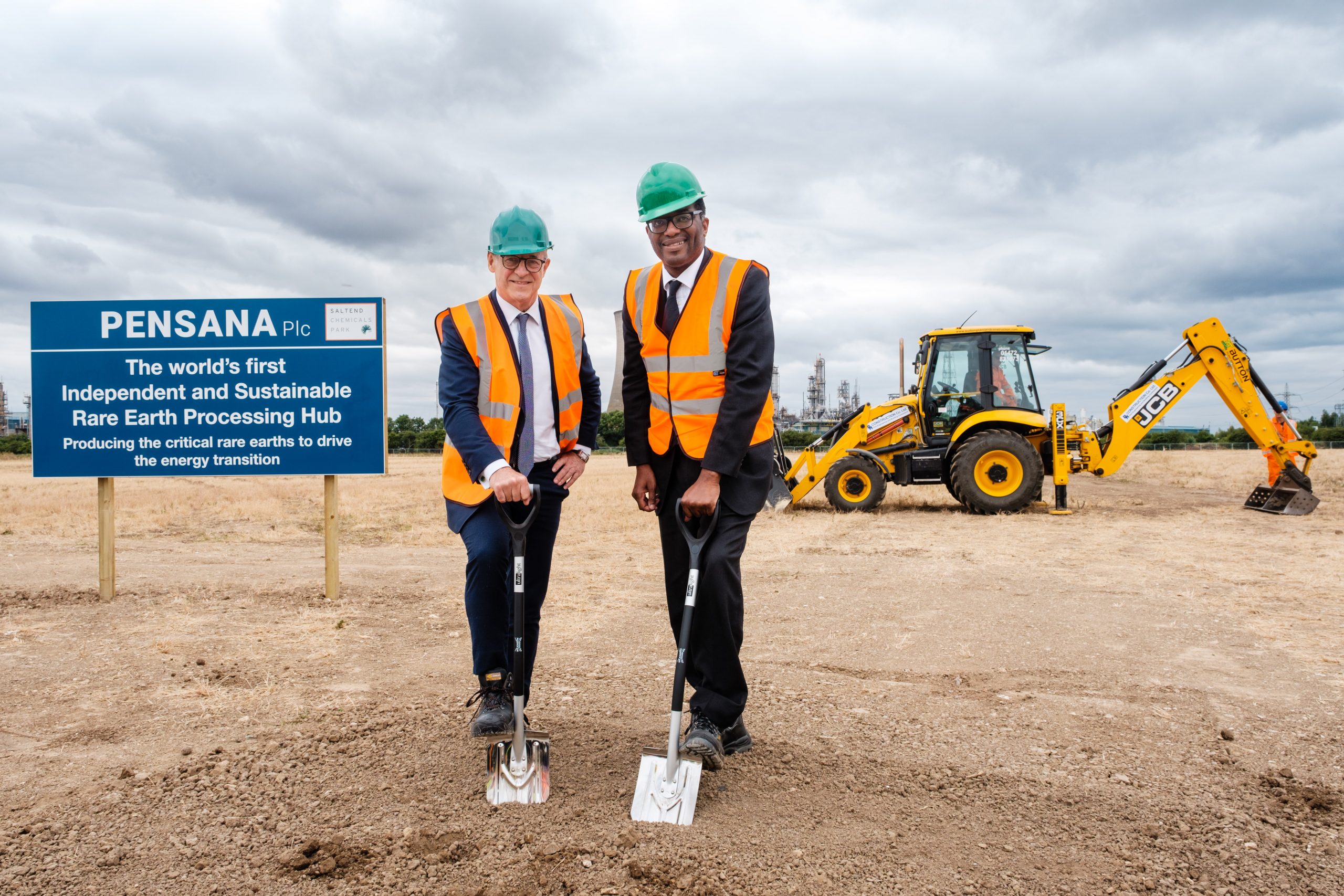Construction has begun of a pioneering British plant designed to wrest control from China of recycling valuable magnetic metals used in EVs and wind turbines.
Metallurgists Pensana intend their £163 million new factory on the Saltend Chemicals park in Humberside’s free port to re-process recovered magnetic rare earth oxides.
Up to 12,500 tonnes of oxides per year – half of them rare metals such as neodymium and praseodymium vital to low carbon power generation and transport – is intended to flow late next year from the factory. It will employ over 120 people directly, with as many as 500 during construction.
Production at that level would see Pensana at Saltend supplying over 5% of world demand by 2025. The plant is one of only three of its type outside China, and only the first such separation facilities to be built in the past decade. EV builders and turbine makers have flagged interest.
Pensana’s factory at Saltend benefits from the Automotive Transformation Fund, Whitehall’s £1 billion pot designed to prime private investment to clean up road transport.
Energy secretary Kwasi Kwarteng was present at today’s ground-breaking ceremony. He used the occasion to launch the government’s strategy on critical minerals. It builds on the government’s Transport Decarbonisation Plan, published twelve months ago.
The business and industrial strategy panjandrum declared: “Pensana’s breaking ground today has been made possible in part through government support.
”It shows how our plans to secure an internationally competitive electric vehicle supply chain in the UK continues to gain momentum”, said Kwarteng. “This incredible facility will be the only of its kind in Europe and will help secure the resilience of Britain’s supplies into the future”.
Britain’s first strategy on critical minerals will, in Kwarteng’s view, help in developing robust supplies of minerals that are key to the country’s economic success and national security, by supplying key industries such as automotive and defence”.
The Humberside plant will also processing material including sulphates from Pensana’s mine in Angola.
The firm has in the past cited observers’ fears that China’s dominance of rare magnetic metals may slow decarbonisation in the rest of the world, if Beijing prioritises decarbonisation at home.




